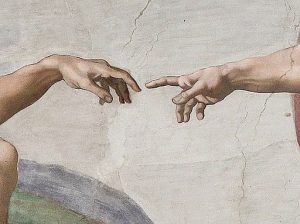 Christians usually focus on the story of the physical creation when they read the first few chapters of Genesis. We miss the fact that these critical chapters are teaching revolutionary truths, which to us seem so basic we can hardly think in any other terms. Yet until Judaism and Christianity brought them to the world, they were not a part of mankind’s thinking. Not only are they important, they are wonderful news once you think about it!
Christians usually focus on the story of the physical creation when they read the first few chapters of Genesis. We miss the fact that these critical chapters are teaching revolutionary truths, which to us seem so basic we can hardly think in any other terms. Yet until Judaism and Christianity brought them to the world, they were not a part of mankind’s thinking. Not only are they important, they are wonderful news once you think about it!
We need to understand how utterly unique the biblical account is compared to all other creation stories, and what the differences say. Most creation myths from the ancient world revolved around the wars and sexual relationships of human-like gods and goddesses. As they imagined it, various parts of creation (like the sky, the earth or the sea) were formed through the sexual acts of the gods or by one god slaying another and dismembering the body.
Humankind was created to be slaves to the gods, to relieve them of daily drudgery. In the Ancient Near East, gods were assumed to be limited in power and not interested in morality, just how to gain power over the other gods. Humans appeased their anger through magical incantations and religious ceremonies, but they didn’t atone for wrongs done to others. It was fine to be quick-witted, devious and underhanded because the gods simply didn’t care.
The assumption of the Ancient Near East was that the world was arbitrary, unpredictable and cruel. Humans had no guarantee that their lives were meaningful in any way. This dismal, pessimistic worldview pervades the writings of these societies.
In contrast, the Genesis account of creation offers tremendous hope. Here are some of the wonderful things it says:
- One eternal God created everything and is apart from the creation. Because God is all powerful, he sets a universal standard of ethics that applies to all humanity. He is the foundation of all good and he cares about what is good, and is concerned about humanity. What good news compared to the immoral, unconcerned pagan deities!
- Not only does God care about what is good, he created the world very good. His creation (including humanity) is a wonderful thing, and even when marred by sin, it will ultimately be redeemed for a great purpose. This should make us optimistic about our existence.
- Man is uniquely precious. He is made from dust like the rest of creation, but he alone receives the breath of life from God himself. We are made in the image of God, and are related to him in a unique way. Because of that, God is our kinsman-redeemer, our protector and savior.
Later in Genesis we read about the Fall and how mankind quickly slips into depravity — first the murder of Abel by his brother Cain, then Lamech who would kill a man for wounding him (Gen 4:23), then the entire wicked generation of the flood (Gen. 6). A little bit of rebellion grows and grows until it permeates the whole human race. Salvation will come later through Christ, but the hope for the world ultimately begins back in Genesis, as we see the character of the God who created us and look forward to what he will do to redeem us.
_______________________________________________________________________
For more on this topic, read Understanding Genesis: The World of the Bible in the Light of History by Nahum Sarna.
Photos: Michelangelo Buonarroti [Public domain], Lucas Cranach the Elder [Public domain]


